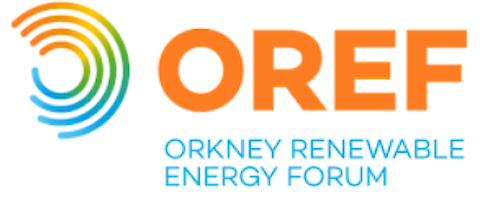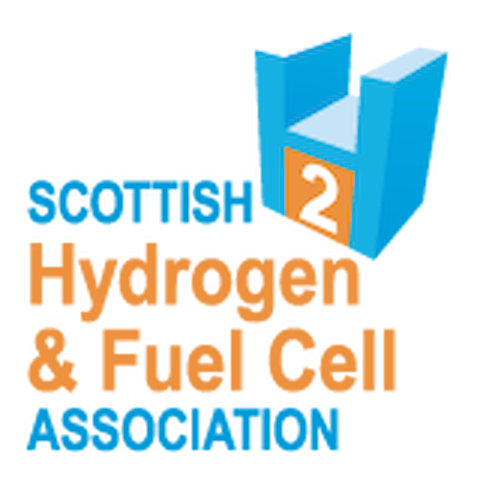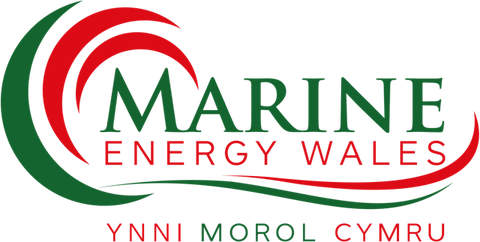Orkney company explores international market for energy system of the future


As part of the first phase of a new £28.5 million project to create a Virtual Energy System (VES) in Orkney, Scotland, project partner Aquatera has mobilised its UK and international teams to seek out suitable system replication opportunities.
The ReFLEX (Responsive Flexibility) Orkney project will demonstrate a first-of-its-kind Virtual Energy System (VES) interlinking local electricity, transport, and heat networks into one controllable, overarching system. The project aims to create a ‘smart energy island’, demonstrating the energy system of the future, which will reduce and eventually eliminate the need for fossil fuels. The project is funded by UKRI through the Industrial Strategy Challenge Fund.
Orkney based Aquatera is a major participant in and contributor to the ReFlex project. The company will lead two work packages which will build the overall commercial delivery framework for the energy system and also explore the prospects for and requirements associated with expansion locally and replication nationally and internationally. Aquatera will be assisted by international commercialisation and replication specialists Columbus Energy Partners® in this work as well as using both companies’ extensive experience of working for better energy futures across a wide range of host communities in the UK and across the globe.
This pioneering project brings together an expert consortium of Orkney-based partners led by the European Marine Energy Centre (EMEC), and including alongside Aquatera/Columbus – Solo Energy, Community Energy Scotland, Heriot-Watt University and Orkney Islands Council – as well as multi-national energy company Doosan Babcock.
At the heart of the project is the establishment of location specific energy services company model which will provide integrated energy solutions supported by attractive leasing type finance and novel approaches to technology ownership that avoid the end user requiring major capital investment.
In terms of technologies, the project aims to deploy:
- Domestic, business and large-scale batteries;
- Latest generation electrical vehicles (EVs);
- Smart EV charging systems;
- State of the art flexible heating systems; and
- Industrial-scale hydrogen fuel cells
Once demonstrated and proven in Orkney, it is expected that the ReFLEX model will be replicated in other areas to create more flexible and renewable-based energy systems. In doing so Aquatera and the other project partners will be striving to ensure that the solutions found match up with the shared global ambitions set out through the UN Sustainable Development Goals. In this way the dual imperatives of decarbonised energy supplies and enhanced social justice can perhaps be best supported and ultimately achieved.
To help better understand individual international market needs Aquatera has already mobilised personnel in/to the Canary Islands, Singapore, Philippines and Australia and is due to reach Hawaii, Zambia, and mainland USA over the next few weeks. The feedback from these places will help to ensure that the Orkney demonstration system is fit for purpose where ever it is applied in the future. A parallel data gathering exercise will also take place across the UK over the coming weeks with investigations planned for Orkneys neighbouring island communities in the Western Isles, Shetland and the Faroes as well as wider UK communities such as Isle of Wight, isle of Man, Channel Islands, Wales, the South West and communities across mainland Scotland.
Energy and Clean Growth Minister, Claire Perry said:
“What we are seeing here on Orkney is a test bed for the energy system of the future. These smart systems are a key part of our modern Industrial Strategy and will provide cheaper, greener and more flexible access to energy for everyone. What we learn from these innovations could one day be rolled out across the UK and exported around the world and we’ll be able to say it was ‘Made in Orkney’.”
Gareth Davies, Managing Director of Aquatera said:
“This project reflects the long-term strategic commitment that the project partners have shown to delivering a more sustainable and improved energy system in Orkney that can then act as a model for other parts of the UK and indeed other places in the world. We see this as a truly transformational opportunity to establish a better and progressive relationship between energy customers and their local energy systems.”
“Over the last few years Aquatera has taken a much more proactive role in pro-active energy project development at home in Scotland and in places such as the Philippines and Singapore – this ReFLEX project offers a major impetus to that strategy.”
ENDS
For further information, contact:
Gareth Davies; MD Aquatera; Karen Inkster; Office Manager
Email: gareth.davies@aquatera.co.uk ; Karen.inkster@aquatera.co.uk
Tel: +44 (0)1856 850088
Editors notes:
Virtual Power Plant animation: https://www.youtube.com/watch?v=jYbmUGnZ4BU
Industrial Strategy Challenge Fund
The Industrial Strategy Challenge Fund brings together the UK’s world-leading research with business to meet the major industrial and societal challenges of our time. It provides funding and support to UK businesses and researchers, part of the government’s £4.7 billion increase in research and development over the next 4 years. It plays a central role in the Government’s modern Industrial Strategy. It is run by UK Research and Innovation, which comprises the Research Councils, Innovate UK and Research England.
UK Research and Innovation
UK Research and Innovation is a new organisation that brings together the UK Research Councils, Innovate UK and Research England into a single organisation to create the best environment for research and innovation to flourish. The vision is to ensure the UK maintains its world leading position in research and innovation. For more information visit www.ukri.org.
About the ReFLEX Orkney Consortium:
- EMEC – www.emec.org.uk
- Aquatera – www.aquatera.co.uk
- Community Energy Scotland – www.communityenergyscotland.org.uk
- Doosan Babcock - www.doosanbabcock.com
- Heriot Watt University - https://www.hw.ac.uk
- Orkney Islands Council - www.orkney.gov.uk
- Solo Energy - www.solo-energy.com
Energy in Orkney
Orkney has taken many steps over several decades to progress towards a local energy system, including:
- Long standing heritage as a national location for testing modern wind turbine technology since the first deployment in the 1950s (http://www.orkneywind.co.uk/costa.html)
- Some of the first large scale (900kW) locally, and now wholly community, owned wind turbines, resulting in community-led local regeneration and community development supported through their incomes.
- The deployment of the UK’s first large scale Advanced Network Management system to manage distribution network constraints, with live energy data available for the island (Live site: https://www.ssen.co.uk/anm/)
- Annual renewable generation over 100% of annual demand since 2013.
- Creating world leading expertise in novel renewable energy demonstration and generation, e.g. tidal, wave & hydrogen (www.emec.org.uk)
- Production of an Energy Audit for Orkney, showing Orkney’s current energy sources and uses, and identifying further ways to move to a local energy system (http://www.oref.co.uk/resources/orkney-energy-audit/)
- Studies into phasing of energy generation outputs and patterns of energy demand, district heating potential, alternative fuels for ferries, strategic planning for generation and distribution infrastructure (http://www.oref.co.uk/resources/orkney-energy-audit/)
- Research and publication of an Electric Vehicle Strategy for Orkney (http://www.oref.co.uk/draft-orkney-electric-vehicle-strategy-2017-2022/)
- Successful demonstration of projects that combine local community-owned and novel renewable electricity generation (wind, marine), energy storage (electricity & hydrogen) and energy demand (electricity, heating and transport) (http://www.communityenergyscotland.org.uk/innovation.asp):
- Surf n Turf, (www.surfnturf.rg.uk)
- SMILE, (https://www.h2020smile.eu/)
- Heat Smart Orkney, (http://www.rewdt.rg/, Heat-Smart-Orkney (Facebok))
- BIG HIT (https://www.bighit.eu/) and
- PITCHES (https://gtr.ukri.rg/projects?ref=103490).
- Long term and ongoing public outreach and engagement through the Orkney Renewable Energy Forum (www.oref.co.uk)
Statistics from the Department of Business, Energy and Industrial Strategy and the Department of Transport show:
- 10% of homes on Orkney have microgeneration compared to 2.8% in the UK; (https://assets.publishing.service.gov.uk/government/uploads/system/uploads/attachment_data/file/780097/December_2018_Sub-regional_Feed-in_Tariffs_confirmed_CFR.xls)
- Orkney has 375% more EVs per home than the UK average ( https://assets.publishing.service.gov.uk/government/uploads/system/uploads/attachment_data/file/763822/veh0131.ods) + (https://assets.publishing.service.gov.uk/government/uploads/system/uploads/attachment_data/file/699014/veh0105.ods)
- Orkney has 2.0 kW of renewable energy capacity per home - 900% higher than the UK average;
- Orkney has 12 times more domestic RHI installations per home than the UK average;
- Annual renewable electricity generation is over 100% of annual electricity use on Orkney.
Whilst there is no shortage of renewable generation assets in Orkney, demand-side flexibility assets are only now developing, through pioneering pilot and local community scale activities. Therefore, the ReFLEX Orkney project will deliver an extensive new pool of flexible demand technologies at regional scale.
For more information, visit: www.oref.co.uk









